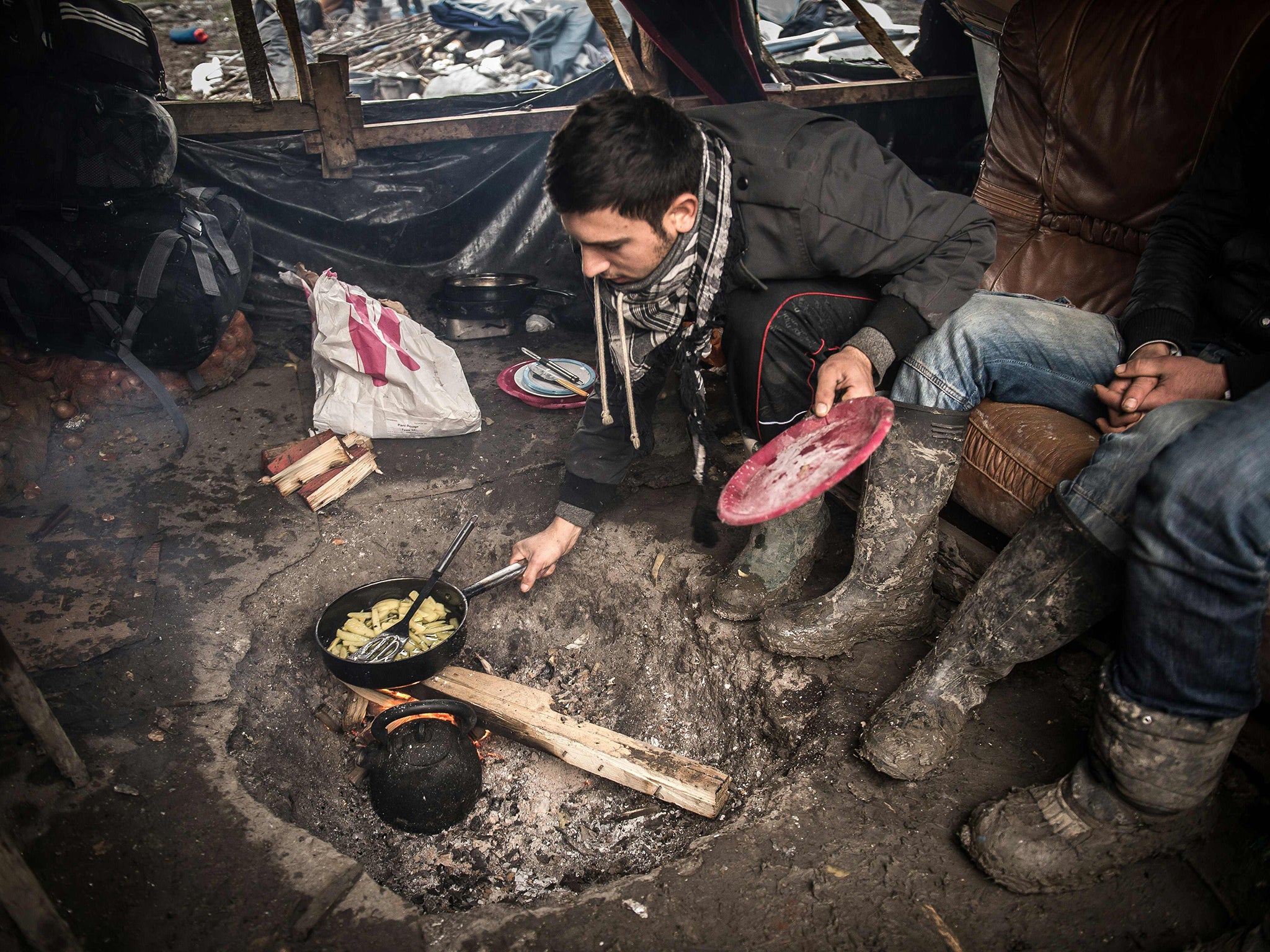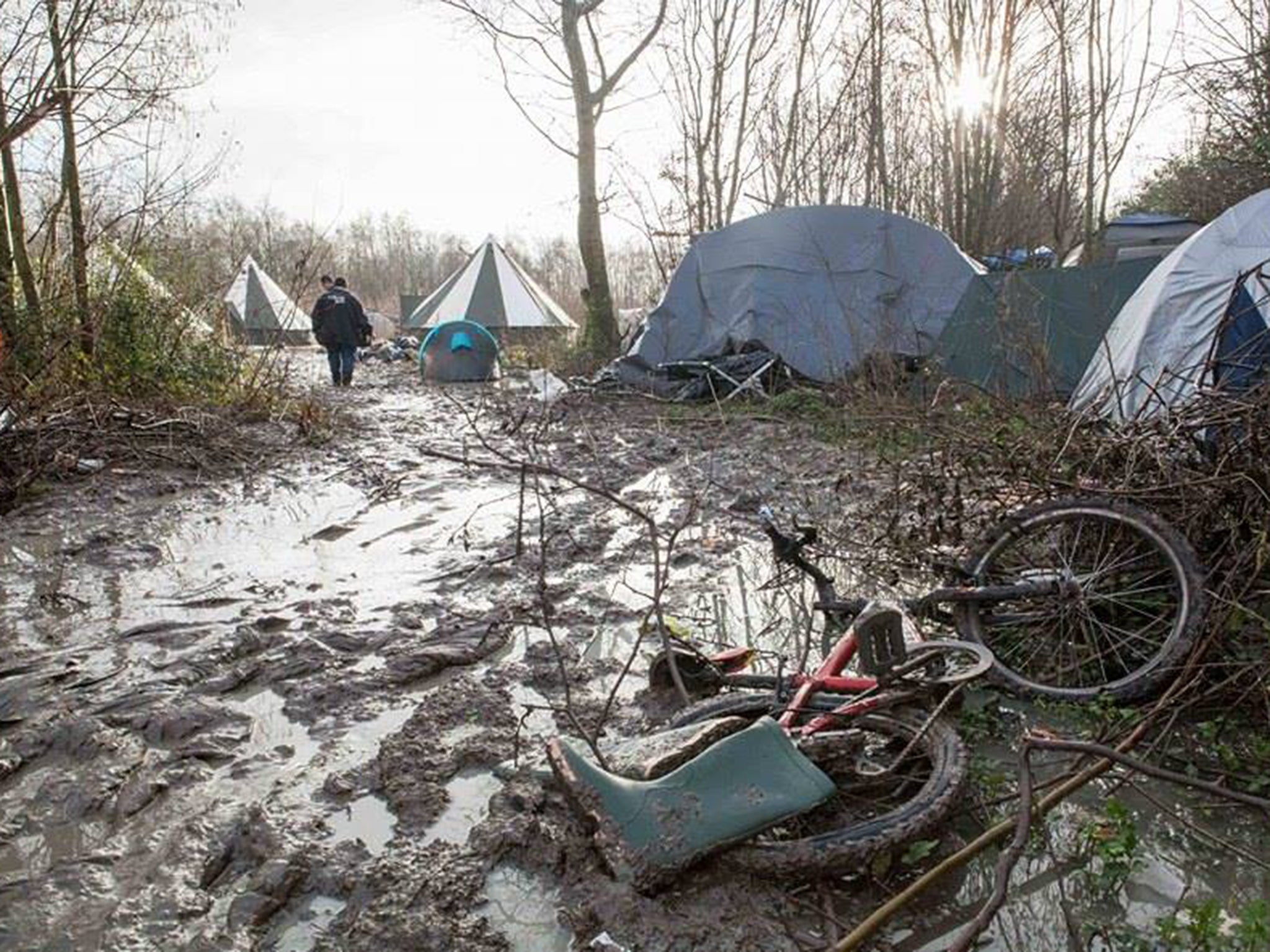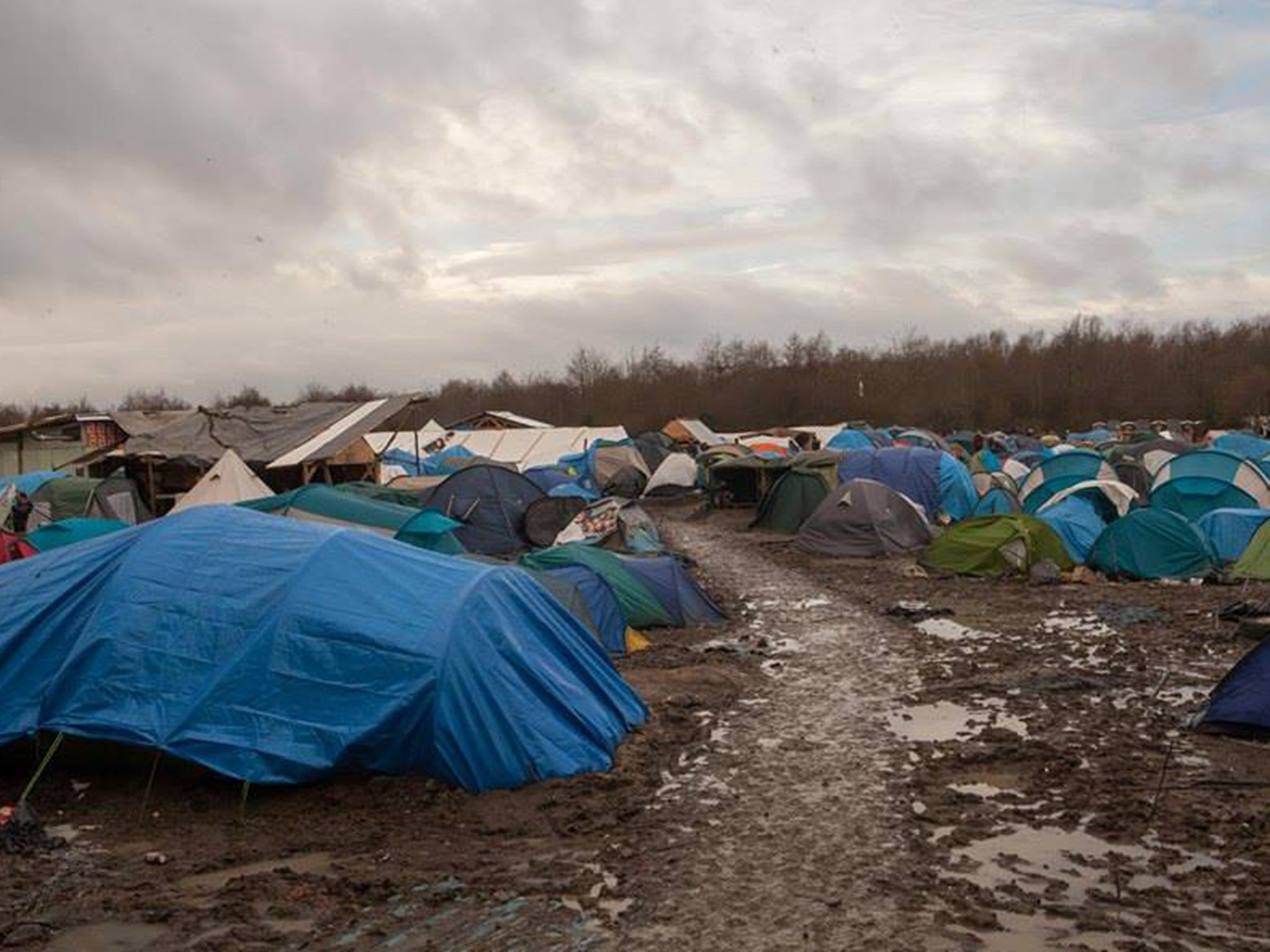Refugee crisis: Police block aid to French camp 'far worse' than Calais Jungle
By-law prompts desperate appeals for help amid detoriating conditions at Grande-Synthe near Dunkirk

Police are blocking aid to one of France’s largest refugee camps, prompting a desperate appeal for help amid rapidly deteriorating conditions.
At least 24 hours of constant heavy rain have devastated the camp at Grande-Synthe near Dunkirk, and volunteers say local officers are refusing to allow them access to the camp with supplies to rebuild it.
Following a by-law put in place by the Dunkirk authorities at the end of December, the only aid allowed into the camp is food and clothing carried by hand.
Even before the recent storms, conditions at Grande-Synthe were described as “far worse” than those in the infamous Calais Jungle.
Two videos shot in the aftermath of the storm by volunteer Rowan Farrell show the impact of the rains on the camp.
Mud and debris swamp the pathways and tents lie collapsed in filthy water.
“Even after four months in Calais, I was very shocked by what I saw in Dunkirk yesterday,” Mr Farrell said.
Another vid from Dunkirk, Grand Synth camp. Path leading up to a central open area that was once a football field.
Posted by Rowan Farrell on Monday, 4 January 2016
Posted by Rowan Farrell on Monday, 4 January 2016
Out of an estimated 3,000 residents in the camp, 200 have already been forced out of their tents, and more are expected to collapse within the next fortnight.
At the start of the New Year, the French government pledged to spend £1.1million building a new camp near Dunkirk, where they plan to relocate the inhabitants of Grande-Synthe.
However, it will be several weeks at least before the new camp is ready to receive any refugees, and the current residents of Grande-Synthe alone will fill it almost to capacity.
Phoenix Clough is one of just eight long-term volunteers currently based at Grande-Synthe and said authorities’ refusal to allow in of tents, wood, tarpaulins and even sleeping bags and blankets was making an bad situation much worse.
She said: “The Gendarmerie [a branch of France’s armed forces which carry out police duties] and the mayor’s office are preventing anything from entering into the camp.
“One Friday evening, we were told that we couldn’t come into the camp with any vehicles without a pass. That meant there was no food taken in all weekend.

“Then the police told us that the few passes we have are fake because they’re photocopied, even though they were issued and photocopied by the mayor’s office.
“They’re saying that they don’t want the camp to grow, but it doesn’t change the fact that it’s at least a month before the new camp opens.
“We are in the depths of winter now. There’s worse weather coming and there is no contingency plan and no structure in place.”
She said volunteers believed the new camp was far too small to keep up with demand.
“There’s contingency for approximately 300 people more to arrive, and in their mind that’s enough space for new arrivals. There will be two communal spaces and that’s it: what about distribution centres, kitchens, women’s and children’s centres? And what about the immediate needs of these people?”
Charities Médecins Sans Frontières and Médecins du Monde maintain a part-time presence in the camp.
But volunteers working at the camp say the large NGOs are waiting for the new government-sponsored camp to open, and are unable to cope with the immediate problems faced by the refugees in Grande-Synthe.
“Even though there are two well-respected long-term groups here, nobody’s even in charge of medical care in the camp,” Ms Clough said.

“They’re as powerless as we are. We need a proper infrastructure and we need one now.”
“Imagine an earthquake or a flood in Haiti and the whole world rushes there to help: that’s what’s happening here and now in France, and no one is doing anything. British subculture and festival circuit people who are stepping up to help, because nobody else is.”
The only professional medical support available at the camp over the 48 hours following the storm was provided by Hands International, who have begun the process of administering vaccines to all the inhabitants.
They reported that 96 out of 100 initial recipients of the flu vaccine were suffering from scabies, and that many of the refugees they treated were also coughing up blood.

At the moment, there is one toilet for every 150 refugees at Grande-Synthe, and just eight taps concentrated in one wash-station serving the whole camp - or one tap per every 400 inhabitants.
Even in the most extreme conditions, experts advise a maximum of no more than 20 people per toilet.
Volunteers on the ground in Dunkirk have released a statement detailing the most urgent needs of the refugees at the camp. The document also contains contact details for anyone who feels they can help meet any of these needs.
As well as demanding an end to restrictions on the delivery of aid and construction materials, they are pleading for more aid, volunteers, resources and donations.
Stocks are already running dangerously low at the main distribution centre in Calais, where they are running out of shoes and blankets. There were only 15 volunteers working at the centre last weekend, down from a high of 200.
There is an urgent need for a warehouse to open near Dunkirk, as otherwise the volunteers will have to turn away bulk donations or watch them be dumped in muddy fields.
“There is one available,” Ms Clough said, “but they want 50,000 euros before they’ll open it, and the first thing we’ll have to do is buy a generator to run the roller shutter doors.”
The volunteers also highlight the need for direct financial donations, more long-term volunteers, increased medical cover, an industrial washing and drying service in the local area, child welfare specialists and individuals with legal and human rights training.
“And we desperately need someone to run PR and admin,” Ms Clough adds.
“We’re just so absolutely swamped. And we’re the only thing coming between these people and death.”
Join our commenting forum
Join thought-provoking conversations, follow other Independent readers and see their replies
Comments
Bookmark popover
Removed from bookmarks